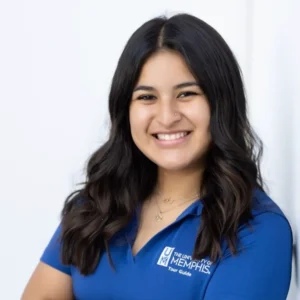A new report by LegalZoom reveals powerful insights into where women entrepreneurs are thriving across the U.S.—and Memphis is making headlines for all the right reasons.
According to the study, which analyzed data from the Small Business Administration and the U.S. Census Bureau, Memphis stands out as the only major U.S. city where women own more small businesses than men. With a female-to-male business ownership ratio of 1.01 to 1, Memphis leads the nation in gender equity for entrepreneurship.
This milestone underscores the city’s deep commitment to fostering opportunity through minority- and women-owned business support, and highlights the impact of community-driven initiatives aimed at making entrepreneurship more inclusive.
Where Women-Owned Businesses Are Thriving
Nationally, states like Florida, Georgia, Colorado, Louisiana, and Vermont are leading the charge when it comes to the number of women-owned businesses per capita. Florida tops the list with 5.77 women-owned businesses for every 100 residents, while cities like Miami are setting the pace with nearly 9 per 100 residents—driven by multicultural entrepreneurial ecosystems and robust support programs.
Atlanta and Orlando are also standout cities, fueled by fast-growing metro economies that offer women founders room to thrive. The Southeast as a whole is proving to be fertile ground for women-led ventures.
Memphis: A Model for Inclusive Entrepreneurship
In addition to achieving gender parity, Memphis is also being recognized as a key player in the broader national conversation around entrepreneurship equity.
LegalZoom’s findings point to the importance of local programs and grassroots support systems in leveling the playing field. In Memphis, a range of efforts—from access to funding and mentorship to partnerships with community organizations—have made a measurable difference in ensuring women have the tools they need to launch and grow their businesses.
This success aligns with Memphis’ broader push toward innovation, equity, and economic growth that includes everyone—especially in historically underserved communities.
Where the Gaps Remain
While progress is happening in many regions, the study also found that some states and cities are still struggling to create supportive environments for women entrepreneurs. States like West Virginia, Wisconsin, and Pennsylvania have the lowest rates of women-owned small businesses per capita, often due to barriers like limited access to capital, rural economic challenges, and insufficient business infrastructure.
On the city level, Stockton, Bakersfield, and Fresno—all located in California’s Central Valley—rank lowest in women-owned business density, despite California’s overall economic strength. These disparities point to how local factors can significantly influence access to opportunity.
Beyond Ownership: Where Women-Led Businesses Create Jobs
The study also looked at how women-owned businesses impact employment and payroll. Hawaii led all states in both areas—employing 7.2 people per 100 adults and paying an average payroll of nearly $482,000 per firm. Wichita, Kansas, topped the list for job creation among women-owned businesses in cities, while San Jose, California, ranked highest for payroll, thanks to its tech-focused economy.
Tennessee also received recognition in this category, with cities like Memphis helping push the state into national conversations about women-led economic power. From retail to tech, creative industries to hospitality, women entrepreneurs are making Memphis a place where business—and equity—can grow side by side.
Closing the Gap, Building the Future
The gender gap in business ownership continues to vary across the country, often reflecting broader structural and cultural differences. While states like Georgia, Hawaii, and New Mexico approach gender parity thanks to strong community and cultural support, other regions—including parts of the Northeast and Midwest—still show wide gaps in business ownership between men and women.
But Memphis’ leading position is a testament to what’s possible when cities invest in inclusive growth and support entrepreneurship from the ground up.
As Allison DeSantis, senior director of product counsel at LegalZoom, put it: “We’ve seen firsthand how more women are taking the leap into entrepreneurship — not just to build wealth, but to create flexible, purpose-driven careers on their own terms.”
And in Memphis, that leap is becoming a launchpad.





























![The countdown is ON, Memphis! We’re officially 30 days out from the @unitememphis 5K + 1-Mile Walk/Run—and this year, we’re stepping into unity on 901 Day 🙌🏽
📍 Monday, September 1 | National Civil Rights Museum
🕘 Start time: 9:01AM
🎶 Food, music & fun to follow
Whether you’re walking or running, this isn’t just a race—it’s a movement. And there’s no better time to join in than now. 👟✨
🎓 COLLEGE STUDENTS: Be one of the first 100 to register using your .edu email with promo code NEXTGENUNITE and your ticket is just $10 (that’s a $32 savings 👀). Limit 2 per person, so tell a friend!
Let’s walk. Let’s run.
Let’s #UniteMemphis 💛
🔗 [link in bio]](https://wearememphis.com/wp-content/uploads/sb-instagram-feed-images/526805187_18335272954206022_6056852028660485499_nfull.webp)







